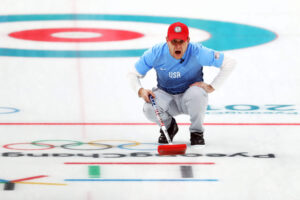by The Cowl Editor on March 1, 2018
Professional Sports
by Joe Myko ’19
Sports Staff

The XXIII Winter Olympic Games was recently held in PyeongChang, South Korea, with the opening ceremony taking place on Feb. 9 followed by 16 jam-packed days full of various winter sports. The closing ceremonies wrapped the games up on Feb. 25.
There were 102 events offered for spectators, ranging over seven sports and 15 different disciplines–including: bobsleigh, snowboarding, figure skating, ice hockey, and various variations of skiing.
Norway impressively concluded the games with the most medals (39), with Germany (31) and Canada (29) finishing 2nd and 3rd in the medal rankings. The United States (23), Netherlands (20), and Sweden (14) had the next highest.
The United States medal breakdown saw them take home Nine gold, Eight silver, and Six bronze medals. Shaun White’s gold medal for the Men’s Snowboard Halfpipe was one of the more memorable moments of the tournament for the US. Not only was he able to secure his third Olympic gold medal, his victory was also the 100th gold medal for the U.S. in the Winter Olympic history.
The Women’s Ice Hockey Team also deserves congratulations for taking home the gold in a memorable 3-2 win against Canada. The win marks the U.S. women’s hockey team first gold medal in 20 years. The women came second in the last two Olympics behind Canada.
The United States’ Men’s Curling Team, comprised of skip John Shuster and a team of Matt Hamilton, Tyler George and John Landsteiner, put on an impressive performance in PyeongChang – securing five back-to-back wins after a shaky start, before finally toppling highest-ranked team Sweden to bring home the country’s second medal in curling and first in gold within the sport.
Despite performing in precarious conditions which pushed back the schedule of two events, Mikaela Shiffrin secured a gold medal for the United States in the women’s alpine skiing giant slalom. Shiffrin took home the second Olympic gold medal of her career, tying Ted Ligety and Andrea Mead Lawrence for most gold medals in U.S. alpine skiing history.
The Olympic Athletes from Russia (OAR) provided an impressive final to the Men’s Ice Hockey event, coming back from 3-2 down to Germany to achieve a 4-3 win in overtime after having tied 3-3 with a short-handed goal with less than a minute left on the clock. This provided Russian athletes with their first gold medal in the event since 1992, when they still competed as the Unified Team.
The Canadian duo of Scott Moir and Tessa Virtue performed a breathtaking ice dancing routine to the soundtrack of Moulin Rouge, providing a memorable event which secured them their third Olympic gold medal and fifth medal overall.

The Nigerian Women’s Bobsled Team provided one of the most memorable and highly-anticipated stories of the tournament, becoming Africa’s first ever Olympic bobsledders. The women were also Nigeria’s second participants at the games in South Korea following Skeleton driver Simidele Adeagbo’s debut for her country. Adeagboo gave an admirable performance within the competition considering she is only six months into competing in the sport on a worldwide scale.
Despite finishing last (115th) in the 15-Kilometer Cross-Country Skiing event, Mexican athlete German Madrazo provided one of the most iconic and memorable moments of the tournament; proudly picking up and waving his country’s flag from the side as he approached the homestretch.
Almost 3,000 athletes took part in the Olympics, competing for a total of 92 nations in all. Six nations also made their Winter Olympic Games debut: Ecuador, Eritrea, Kosovo, Malaysia, Nigeria, and Singapore.
The 2018 Winter Olympic Games logo represented two hangul letters, from the Korean alphabet, which make up the initial sounds of PyeongChang. The first of these symbols is also said to be the Korean philosophical triad of humanity, earth and heaven, whilst the second symbol is a crystal of ice. The games had two official mascots, an Asian black bear called Bandabi and a white tiger called Soohorang.
The next installment of the Winter Olympics is set to take place in Beijing, China, in 2022, with the opening ceremony scheduled for Feb. 4.